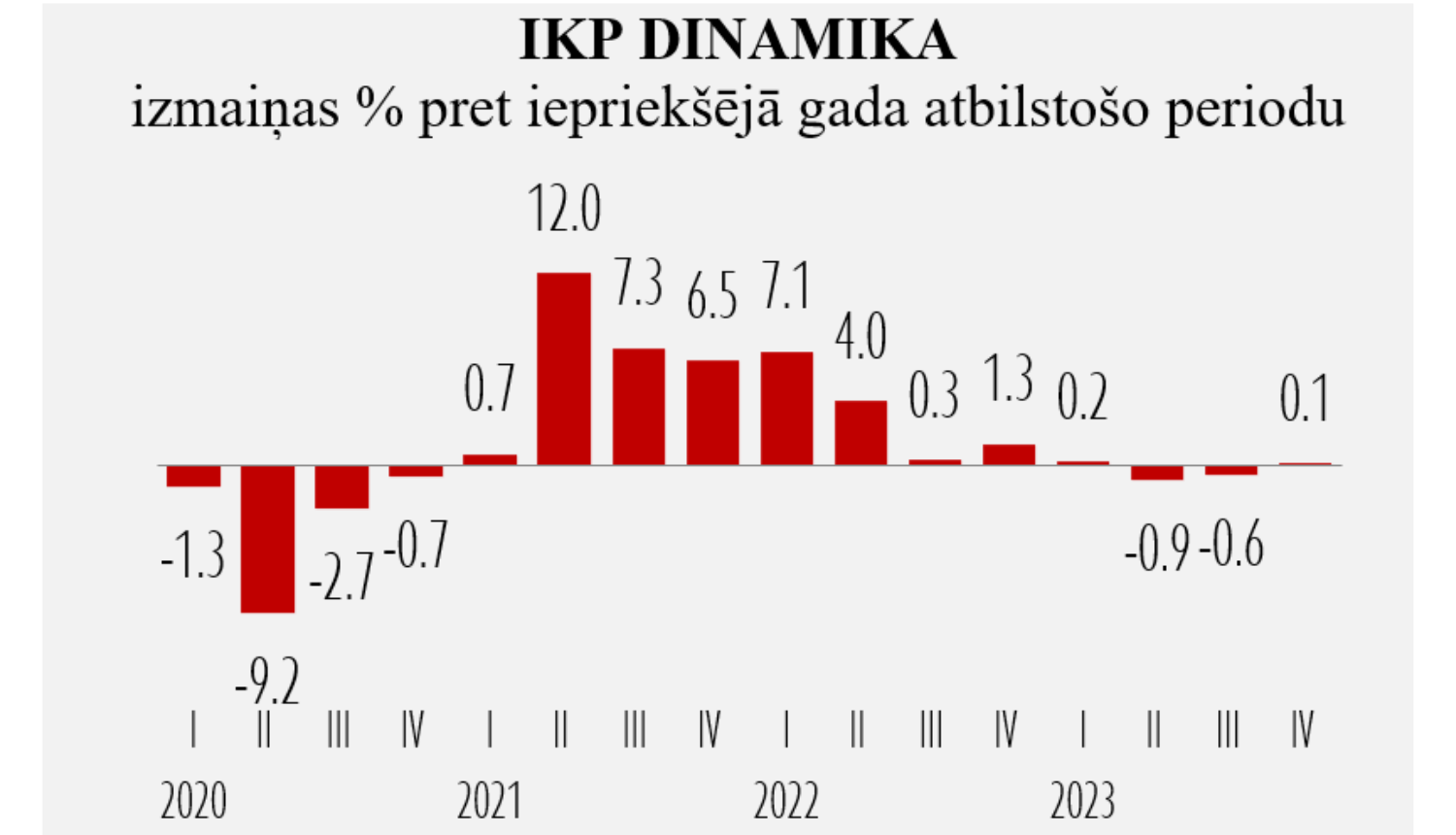Translated with DeepL.com
According to data published by the Central Statistical Office, GDP in Q4 last year was 0.1% higher than in Q4 2022 (in unadjusted constant prices).In 2023, GDP growth was negatively affected by a decline in manufacturing (by 1.4%) and product taxes (by 5.1%), as well as a positive increase in services (by 0.8%). Overall, GDP contracted by 0.3% last year, a more modest contraction compared to the flash estimate (-0.6%).
At the same time, a positive trend was also noted, with an increase in Q4 compared to both Q4 2022 and Q3 2023, reflecting the economic recovery and adjustment to the new geopolitical environment.
Economic trends already pointed to GDP in 2023 remaining close to 2022 levels. An unfavourable external environment and weak demand in the main target markets affected Latvia's export performance. High inflation had a negative impact on household consumption and real personal incomes. The geopolitical situation in the region and weak credit constrained investment growth.
The economic situation is expected to improve this year.
International institutions forecast that Latvia's major export markets will grow in 2024, with a positive impact on export opportunities for Latvian companies. As inflation stabilises, households' real disposable incomes will rise and the minimum wage will rise from the start of 2024. Overall, private consumption is expected to increase. A more active implementation of EU fund programmes will have a positive impact on investment dynamics.
In 2023, construction (+18.6%), arts, entertainment and recreation (+11.7%), education (+7.8%) and accommodation and food services (+7.4%) showed growth, while sectors such as agriculture (-8.1%), transport and storage (-7.8%) and manufacturing (-5.2%) contracted.
As in previous years, different sectors will continue to follow different trends. As in 2023, the construction sector is expected to show the strongest growth and employment opportunities. EU funds and public procurement, as well as the increased availability of credit for private construction projects, will have a positive impact on the sector. The trade sector will gradually recover from its slump in 2023, positively influenced by increased foreign trade flows and the dynamism of the wholesale sector. The retail trade sector, in turn, will benefit from the expected increase in private consumption.
Manufacturing is expected to return to positive growth, mainly driven by improving export opportunities. Some companies linked to the Russian and CIS markets will continue to face difficulties, and in this context will need to continue to seek new supply opportunities and new markets for their goods. Domestically oriented industries will be affected by the purchasing power of the population.
Without a significant deterioration in the external environment, the Ministry of Economics forecasts that economic growth in Latvia could be close to 2% in 2024.



